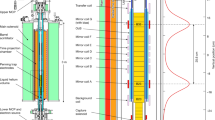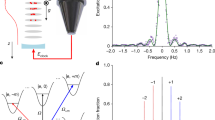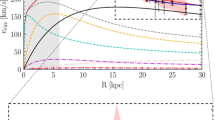Abstract
IT is reasonable that the unexpected results of the recent repetition of the Michelson experiment by Prof. D. C. Miller should have made Dr. Silberstein say that they “knock out the relativity theory radically” (NATURE, May 23, p. 798). But though Einstein has built the special Theory of Relativity on the negative result of the experiment, I am of opinion that the Miller effect does not prove anything against the general theory. It should be stated emphatically that the special Theory of Relativity can only be built up rigorously if based upon the general theory, not inversely. The special theory does not consider any but linear transformations. But avoid ing every acceleration implies the impossibility of comparing measures and clocks moving relatively to each other. On the other hand, the usual sup position that the effect of a passage from rest to uniform motion, etc., tends to zero with the time in which it takes place, can only be based upon the assumption that the ratio of the time to the proper time (interval) between two points on any (curved) world line remains finite and different from zero. But this assumption requires the consideration of non-linear transformations, and thus of the general Theory of Relativity.
This is a preview of subscription content, access via your institution
Access options
Subscribe to this journal
Receive 51 print issues and online access
$199.00 per year
only $3.90 per issue
Buy this article
- Purchase on SpringerLink
- Instant access to the full article PDF.
USD 39.95
Prices may be subject to local taxes which are calculated during checkout
Similar content being viewed by others
Author information
Authors and Affiliations
Rights and permissions
About this article
Cite this article
VAN DANTZIG, D. The Miller Effect and Relativity. Nature 116, 465 (1925). https://doi.org/10.1038/116465a0
Issue date:
DOI: https://doi.org/10.1038/116465a0
This article is cited by
-
Die signififchen Grundlagen der Mathematik
Erkenntnis (1934)



